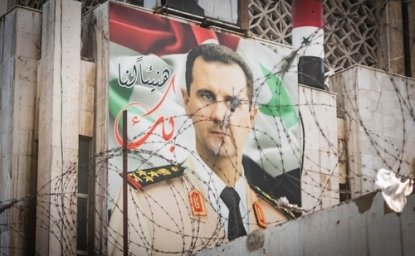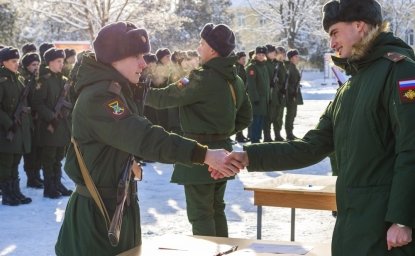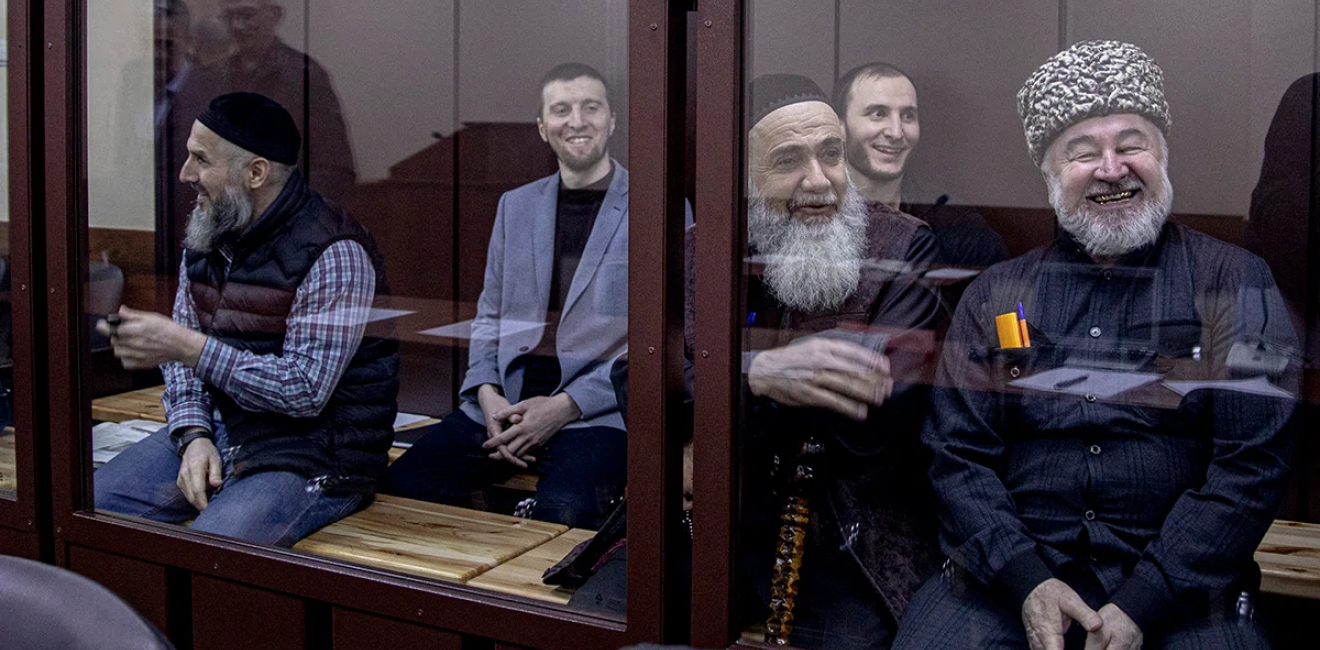
A blog of the Kennan Institute
BY ZARINA SAUTIEVA
The partial mobilization announced by President Putin has taken Russia’s war against Ukraine to an entirely new level. The Moscow regime is now fighting the peoples of both Ukraine and Russia. The events of the past few days have accelerated the countdown for Putin’s Russia that began on February 24, for civilian resistance to the mobilization drive is mounting. By way of example, let’s look at what is going on in the Republic of Ingushetia.
Ingushetia, the smallest Russian republic, is located in the North Caucasus bordering Chechnya. Thirty-nine people from the republic have been confirmed dead, and not all of the Ingush servicemen have been found by their relatives after the Russian army’s hasty retreat from Kharkiv.
This number is less than the 250 servicemen from the Mozdok district of neighboring North Ossetia known to have died, yet it is a tangible loss for a republic of only half a million population where everybody knows everybody else and news about the dead and wounded quickly makes the rounds on social media.
Reports indicate that a disproportionate number of dead in the war have come from Muslim-majority provinces in the North Caucasus, with recruitment efforts often focused there.
An Uptick in Local Tensions
The war in Ukraine has added fuel to existing tensions in the relationship between society and authorities in Ingushetia. Ingush society, evaluating developments through the lenses of Ingush and Islamic ethics, has felt from the beginning that the war in Ukraine is neither just nor permissible.
In Ingushetia, the ideological supporters of the war in Ukraine are found mostly among the government-connected Ingush. State officials perceive the war as inevitable and believe they owe unquestioning loyalty to the government, but they are not ready to fight. Those loyalists use their connections and corrupt ties to protect themselves and their children from conscription.
In general, the Ingush condemn the war and do not cheer for those who join the Russian troop effort in Ukraine for money, only to lose their lives. Even seven months of relentless propaganda broadcasts on TV have not changed the Ingush perspective on what is happening. This is due not only to the distrust of regional and federal authorities but also to the history of relations between the Ingush people and the Kremlin.
The Ingush cannot forgive the Kremlin for not implementing the Law on the Rehabilitation of Repressed People of 1991. Under that law, a large part of Ingushetia, Prigorodny district, was to have been reincorporated into Ingushetia, but it remained part of Ossetia. The federal authorities also failed to react properly to the 1992 conflict in Prigorodny during which many Ingush were murdered or forcefully evicted from their homes.
The Ingush themselves and many experts refer to those events as ethnic cleansing. And like other peoples of the North Caucasus, the Ingush remember Russia’s counterterrorism operations in the 1990s that decimated two generations of Ingush. The 2018 agreement demarcating the border between Ingushetia and Chechnya concluded by Yevkurov and the Chechen leader Ramzan Kadyrov proved the last straw.
A Fatal Loss of Trust
It is worth dwelling on these events in more detail in order to understand the grievances the Ingush hold against the Russian state and the alienation that has arisen between society and the authorities.
An attempt to keep the 2018 border agreement secret sparked peaceful protests that were widely reported around the world. Russia’s security agencies responded to the rallies with numerous arrests. Over fifty criminal cases were initiated. Seven activists, including two elderly people and a woman, were sentenced in December 2021 to seven and a half to nine years in prison on charges of participating in an extremist community and fomenting unrest. In local opinion, the trials were staged, while the disrespectful treatment of a woman and the elderly, unacceptable in Ingushetia, was taken as an insult.
During the protests, a number of Ingushetian police patrol officers formed a chain between the protesters and the Russian National Guard troops, thereby preventing clashes. In March 2019, twelve of those officers were fired for insubordination. It is unlikely that this court ruling has boosted loyalty to Moscow's among the regional security forces. By now, trust between society and the authorities has been essentially broken.
Ingush society has effectively launched an opposition to the Russian state. The regional authorities have no means of effectively communicating with the people. The Ingush will view the mobilization drive as the next phase of the conflict between the state and its citizens.
Even the Muftiyat of Ingushetia, the republic’s Islamic administrative entity, supervised by the spiritual leaders or mufti, has refused to speak in support of the war. Ingushetia’s religious leaders prefer to keep their position over the war to themselves. Since 2019, the civil authorities have tried without success to liquidate the Muftiyat. The republican authorities, feeling their own weakness and lack of influence, are much less outspoken in their support for war than are their counterparts in neighboring Chechnya, North Ossetia, and Kabardino-Balkaria. The spring conscription campaign in the region has mostly failed.
For the Ingush, sabotaging the mobilization effort looks like a logical step in their long-simmering confrontation with the regional and federal authorities.
Ingushetia Is Not Alone
Similar stories can be told about many other Russian regions. During the past five to eight years, the corruption that paralyzes good governance has led to a profound alienation of the governed from the administrators. The regional elites hold grudges against the federal authorities. Small and medium-sized businesses loathe the administrative barriers, corruption, and largely failed COVID-19 policies. The population is frustrated by rising prices, the destruction of the social sphere, and disregard for their interests and opinions.
The collection of signatures of Khabarovsk residents in favor of sending the Kremlin-imposed governor to the front in response to his appeals to the people to “fight for the motherland” is indicative. Sabotage of mobilization efforts and the “Go fight yourselves” response to appeals to the patriotism of the Ingush and many other regional societies are the form of social protest that is possible for today’s Russia. Together with the fighting forces of Ukraine, such rejection of conscription will go far to stop Putin’s aggression.
Neither Russian society nor Russian state institutions are ready for mobilization. Attempts to forcibly conscript young people into the army are likely to meet with growing resistance from citizens, up to and including armed confrontation with authorities.
The opinions expressed in this article are those solely of the author and do not reflect the views of the Kennan Institute.
Author

Democracy Fellow, Center for European Policy Analysis

Kennan Institute
The Kennan Institute is the premier US center for advanced research on Eurasia and the oldest and largest regional program at the Woodrow Wilson International Center for Scholars. The Kennan Institute is committed to improving American understanding of Russia, Ukraine, Central Asia, the South Caucasus, and the surrounding region though research and exchange. Read more

Explore More in The Russia File
Browse The Russia File
In Search of Russia’s Digital Trace in Romania’s Political Crisis

With Syria’s Collapse Russia’s Regional Power Play Disintegrates

Putin's Strategy Tests Europe's Defense Limits

